- Home
- Heather Graham
When We Touch Page 9
When We Touch Read online
Page 9
They had begun drinking at a less than noble establishment, one hovering on the edges between notoriety and total abandonment. The pub keeper, a Luther Green, had learned in his less than illustrious career that often, the more straitlaced and proper a man appeared to be—or felt that he must be—the more in need of real entertainment.
And so Luther had learned the one element most important to any business—supply and demand.
The demand was out there, and he knew how to find the right supply.
It had only taken the acquaintance of one really important fellow, and he had managed that through Lord Percy Ainsworth.
Justin had come into play with the various forms of entertainment provided by Luther Green through Ainsworth—just as Prince Eddy, Duke of Clarence, eldest son of the Prince of Wales, heir apparent to the Crown of Great Britain.
Eddy had a fascination with the East End. He was very young, and sadly, not very bright. Justin actually liked him, and felt sorry for him. He was good to those around him through a natural generosity. Most of those around him, however, made jokes about him when he was not among them. He hadn’t been educated for any particular goal in life. That he would one day be king had seemed enough.
And still, Eddy was like every young man of his age. A few years older than Justin, he was fascinated by play, and was known in certain circles as “Prince Collar and Cuffs.” He loved being a dandy, gambling, and he loved women and, a few very close to him knew, men as well. He was wary of many of the women who swirled around him in his grandmother’s world at court—as well he should be. Despite an outward appearance of adhering to the strict morality and devotion to legal spouse and family brought in by Prince Albert, many of those hanging about were vultures.
Eddy was aware he was a vulnerable target.
He especially loved the East End. He came without a title, even if his entourage was often with him. He met women, and Luther Green saw to it that a steady supply was available. The East End was filled with the worst kind of prostitutes—aging women, often close to death through cirrhosis of the liver from too much gin, and frequently pockmarked, filthy, missing teeth, and certainly, simply ugly. For the prices they charged, a loaf of bread, doss money for a single night, they sometimes managed to get by. Their ugliness didn’t matter, for such business was usually carried out quickly, from behind, and a woman’s ravaged face need not be seen.
But these “fallen angels”—as they were sometimes, ridiculously, romantically called—had all begun somewhere. Of course, there were those who began their careers late in life, deserted by a husband, or, sometimes, consumed by alcohol addiction.
But there were those who came fresh off the boats from foreign lands, young and innocent, not even aware of the profession that was about to engulf them, ruin them, and make old women of them far before their time. There were poor-paying jobs to be had in factories, and many started out there with dreamy eyes, praying for a better future. For them, a night with a “gentleman” paid more than a week of hard labor.
It was these fair maidens who men like Luther Green found for his “special” customers.
That night, with Percy, he had planned a rather spectacular event in one of his private rooms. Belly dancers and harem masters, scantily clad, engaging in theatrical sex, moving on to afford whatever entertainment a man might require. The room had a secret stairway that led to small private rooms upstairs, and in the midst of pageantry play and raucous behavior, a man might choose among the entertainers for a private assignation.
The belly dancers weren’t real at all. Nor did they really know how to belly dance. But both the men and women brought in for the play had been ordered that cleanliness was demanded for the roles they would play, and the scanty apparel provided had indeed been provocative. Justin himself seldom engaged in such base play; he had a mistress, Louisa, who served the Crown Princess Alexandra, was widowed, and perfect for his needs. Their affair was quiet and unremarkable; neither expected marriage or everlasting fidelity, and it suited them both well. But tonight . . .
One of the young women had been quite alluring. Truly fresh, with huge green eyes, a wicked free length of ink-dark hair, and breasts the size of melons, rouged and exposed. She had lured him up the stairs, and he had discovered that her innocence was but play. Her lips were sensual and well-formed and she knew how to use them, along with various other body parts. It helped that he had imbibed far too much cheap whiskey, and, of course, by that time, it seemed that anything at all might be amusing, so when the first young beauty was joined by another, he just lay back and enjoyed. They expected payment, though, and somewhere, in the dull recesses of his mind, he realized that he was able to afford his entertainment because he was allowing his sister to take on his debts. That had left him feeling ill, filled with self-loathing. As it happened, he owed no one anything for the evening, since Percy Ainsworth had paid for it all beforehand. Still, Justin had to wonder if that absolved him of guilt or not, and then, later, as they staggered into the streets, Eddy among them, and the horse nearly ran them down, he found himself not angry, but wondering just what a loss there might have been if he had died there in the streets.
“Sweet Jesu!” Eddy exclaimed suddenly, and Justin realized that the Prince was staring at him. He had dark deep-set eyes in an almost handsome face. “You saved my life, Graham!”
“What?”
“You pushed me out of the way!”
Justin shook his head. “Eddy, the horse would have shied away; that was a well-bred animal. Trust me—we were all startled, but I don’t think that I pushed you out of the way, I think that the horse managed to sidestep us. Lord knows, my head is reeling. I might well have knocked us all into the animal.”
“Well, all’s well that ends well, eh?” Among their party that night was Walter Sickert, the artist. Justin personally thought many of his paintings were a bit too base and bizarre, but Walter was gaining a following. Like Eddy’s mother, he was Danish, and therefore, the Princess thought he was a good person to teach Eddy about life.
Justin wondered if Princess Alexandra knew just what Sickert was capable of teaching Eddy about street life, but then again, with the friends Eddy already kept, he couldn’t think of anything much more base or degrading the Prince could learn. He had it on good report that there was a certain house on Cleveland Street where the Prince played. It was a brothel which offered male prostitutes.
Roger, who had somehow remained the most sober of them, was still staring in the direction the horse had run.
“Rather fine animal for a place like this,” he commented.
Percy burst into laughter and clapped a hand on Roger’s back. “And so are you, Sir Roger!” he proclaimed. “And me, of course, I’m really far too fine an animal for this place, but then again, I am an animal.”
“Listen!” Roger said. “Hear those whistles? The coppers are all about!”
Roger was right; somewhere near, whistles were sounding. Pretty soon, he thought, the streets might well be filled with bobbies, hurrying about, after some criminal—petty or other. In these streets, they often enough stepped over bodies. Most of them still warm and breathing, but so far under the influence of drink that they were dead to the world—for the present.
Upon occasion, there was that body of one gone forever. Men knifed men in these parts for whatever pennies might be found in their pockets. They killed out of jealousy or rage, or because of a barroom brawl—when glass was broken, then driven into the jugular of one poor fellow or another. Little notice was taken.
Paupers died without fanfare.
Not that the police didn’t try. Justin knew that they tried very hard.
But the roots of evil here were deep. They were in the filth and grime of the streets, the tenements with their shattered windows stuffed with rags to keep out the worst of the cold and the stench and the wind. They were in the desperation caused by starvation, and a life so severe that all the civility earned in thousands of years of existence was
reduced to simple survival.
“We’ve got to get back to my coach,” Percy said, and even he sounded somewhat disturbed; none of them wanted to be caught.
Many things went on in truth. But they were all hidden from the Queen. They might be living in the nineteenth century, but her virtuous disapproval could be known.
“There! Percy, there’s your coach now!” Roger said.
And indeed, the massive carriage with the Ainsworth coat of arms displayed on the doors was thundering down the street, heading their way. It pulled to a stop.
To Justin’s amazement, the head that popped from the doorway belonged to none other than Sir James Langdon.
“Get in, fellows, get in. There’s some commotion going on down the street.”
They all leapt in, quickly. As the coach jerked and set off, Justin looked back. They’d barely made it. The streets were indeed beginning to fill with police officers. More whistles were blowing, and men were running down the dank, misty, gas-lit streets.
He leaned back in the coach, staring across at Jamie Langdon. The man was staring back at him.
But Eddy was the first to speak. “Bless you, Langdon! How on earth did you manage to get hold of Percy’s carriage and bring it so swiftly?”
“I was about on some of my uncle’s business,” Jamie replied. “And, of course, I knew you boys were out and about tonight—Roger had told me earlier. I got quick wind of a bit of trouble due to some new mesmerist and thought to check on you fellows. But then again, séances aren’t really part of Percy’s usual scheme of things; still, I knew the house was near Luther Green’s, and took a chance you might need a quick getaway. Good thing your coachman knows me, Percy.”
“Indeed. That was a wonderously timed arrival!” Eddy applauded.
“Glad to serve, Your Grace,” Jamie said dryly.
“Where’s your conveyance?” Walter Sickert demanded, his voice strangely suspicious.
“Up ahead,” Jamie said. He grinned across at Percy. “If all failed, I didn’t intend to be caught in my own coach. So . . . was the night’s entertainment worth the excitement?”
“I have memories that will allow incredible creation,” Sickert said.
Justin felt uncomfortable. He didn’t like Sickert. He might be an acclaimed artist, and his friendship might appear popularly Bohemian, but there was an undercurrent about him that seemed to hint of something beyond simple bawdy play or pleasure. Percy had told him once that Sickert had a fine wife, but preferred the basest of mistresses. He was fond of delivering a certain amount of pain from which to derive pleasure. Sick-ert. The name fit the man.
And yet Justin felt that sense of nausea again. He was out with this group. And they all had their little oddities. Maybe not Roger, but the others . . .
He had sold his sister . . .
For this.
He wondered if that was what Jamie Langdon was thinking as he stared across the carriage at him.
He’d never know. “Here, stop here,” Jamie said suddenly, sticking his head out the window to shout to the coachman. Sitting back, he told them, “Darby is waiting for me, just ahead, on the corner.”
He exited the carriage to another round of thanks. The evening had been an adventure rather than a disaster.
Indeed, Justin thought.
They definitely owed the man their thanks.
Still, he found himself wondering if James Langdon would mention Justin’s presence at the pub cum whorehouse to his uncle, and if, in turn, Charles would mention it to Maggie.
He found himself remembering her words. She was determined on Charles because she desperately wanted him to find a wife and continue their line—and keep the title from Angus. They had loved their father, and, admittedly, neither of them cared much for their uncle.
So, he should marry. A noble or a commoner, Maggie didn’t care.
But he wasn’t sure that Maggie understood why he hadn’t done so.
He had seen what she had felt for Nathan, the commoner, the policeman. He had seen her eyes when they rested on the man, and the way she came to life, just because he was near. And that was what he wanted. Silly as it might be in the great scheme of things, he wanted what his sister had once had. He wanted to be in love, and he didn’t want to vow the rest of his life to a woman if he did not feel that he could love her, live only for her, forever and ever.
* * *
It took Jamie longer to arrive at the Aldgate station than he had planned, but the appearance of the men in the street had been just too good, especially after he had noted Percy’s carriage just a block away.
He wondered if he would find Maggie and Mireau, and indeed, his horse for that matter.
Maggie and Mireau he could find.
He just prayed that they didn’t abandon Newton anywhere. His horse was exceptional, a gift from the Prince of Wales, bred from the finest English stock and an American mare, product of a sire who had won the Kentucky Derby. The Queen, it seemed, didn’t trust her eldest son with much, and yet, from what Jamie had seen, the Prince of Wales was an excellent statesman, and a fine judge of horses. He was a gambler and a rake as well, but kept his affairs discreet—for the most part, at least. The Princess Alexandra tolerated his behavior lovingly, and yet, they all seemed dismayed with Eddy. The Queen gave her son no trust; he, in turn, despaired of his own heir.
Jamie reflected that he could hardly solve the problems of the Monarchy; he was having difficulty dealing with his own small fraction of life.
But, at last, turning a corner toward the station, he saw Newton. Both Maggie and Mireau were standing awkwardly by the horse, looking to be quite anxious that he had taken so long.
“Ah, there you are, Newton, my boy!”
As he walked up, patting the nose of his huge black stallion, the two stared at him. He realized with a twinge of humor that, through it all, neither had recognized him. And now, of course, he had shed his own disguise.
Mireau was losing his mustache and muttonchops. Maggie was still hidden behind the darkness of the black veil.
“Sir James . . . ?” Mireau said carefully.
Maggie elbowed him fiercely in the ribs. “We must be going—Ben.”
“Oh, please, Maggie. Must you insult my intelligence so?” Jamie demanded.
She swept the veil back, defiant. “Are you going to send Mireau on home and give me another lecture?” she asked impatiently.
“Actually, yes. In fact, there’s a carriage.”
“Mireau, don’t you move!” Maggie said.
“Mireau, the cab is just there . . . it won’t hover forever.”
Mireau groaned softly.
“Oh, good heavens, go, then!” Maggie said.
“He saved our lives tonight!” Mireau reminded her softly.
She had the very good grace to flush furiously. She looked down. “Yes, yes, you did,” she admitted. “Thank you.”
There was even a touch of humility to her voice.
“I think I’ll employ that cab,” Mireau said, walking away.
Maggie’s eyes rose, and locked on Jamie’s. They both seemed to wait. Though neither really watched Mireau leave, they didn’t speak until he was in the cab.
Now and then, a conveyance passed them by. A straggling walker skirted them once or twice.
At last she said ruefully, “Yours was a rather good disguise.”
“Thank you.”
“Do you use it frequently?”
“No.”
“You just happened to be there tonight?” she queried.
He shook his head.
She looked away. “So, you are spying on me all the time, and you did know that I was going.”
“Yes, I knew you were going.”
She looked away. “Well, naturally, on this occasion, I have to be grateful.”
“What you have to be is . . .”
“Proper?” she inquired, looking at him again. “I’m afraid it’s a little late.”
“Whatever makes you do suc
h things?” he asked.
Her eyes widened. Their blue was as deep as the night. “Such things as tonight? They have to be stopped! There are far too many people thinking to make their fortunes off the tragedy in the lives of others. What they do is cruel, terrible!”
“Maggie, many people purport themselves to be spiritualists. They sit in dark houses and imagine that they commune with ghosts. Most of them are harmless. And at worst—usually—they do a little fleecing. The problem is, of course, that you can come across those who are intending to acquire real riches from the wealthy, such as tonight. People who wouldn’t wink at murder in the pursuit of their own gain. Tonight could have turned into an absolute tragedy, with poor Lady Marian being a victim as well.”
Maggie gasped. “You do think she’s all right?”
“She’ll be more than all right. She’ll delight in all the attention that she’ll get. She’ll tell wonderful tales about the mysterious men and woman who saved her, and she’ll be in all the papers, even in America. She’ll love it. But you, my lady. You apparently weren’t at all aware that you were risking your life.”
“I admit, I’ve not come across frauds with guns before,” she said stiffly.
“Would you consider swearing that you wouldn’t entertain such a venture again?” he asked.
He was startled when a touch of tears created a glitter in her eyes, making them crystalline. “You don’t understand. What they do to people is . . . horrible.”
He sighed deeply. “Maggie, I can only assume from what you’re not saying that one of these people managed to draw you in after your husband died. That you were in such a state of grief that you were desperate, and willing to believe anything, and that you then discovered you were being taken.”
“Does that make me truly pathetic?” she asked him.
He shook his head, barely aware that he had reached out to move some of the veil from her face, moving it back over the length of her hair. “It just makes you human,” he told her. “And still, you can’t go around risking bullets or knives or other danger all the time. And . . . you shouldn’t risk your life in the East End. The danger there is not just a desperate cutthroat, but the disease that can run so rampant in those horribly crowded and squalid conditions. And what is happening now goes beyond all that we have heard before. Maggie, did you listen—really listen—to Father Vickers? A woman was not just murdered, but disemboweled.”

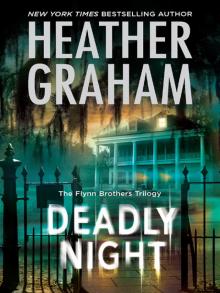 Deadly Night
Deadly Night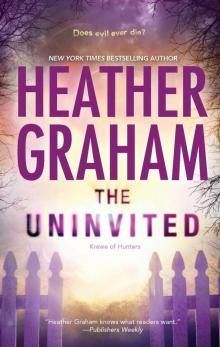 The Uninvited
The Uninvited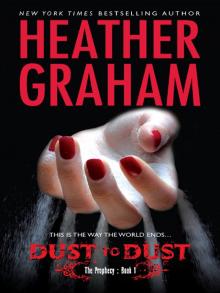 Dust to Dust
Dust to Dust Heart of Evil
Heart of Evil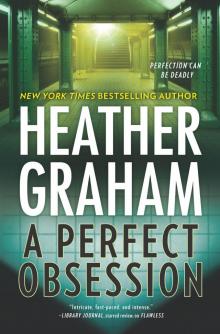 A Perfect Obsession
A Perfect Obsession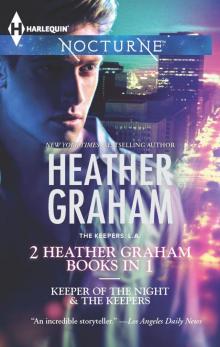 The Keepers
The Keepers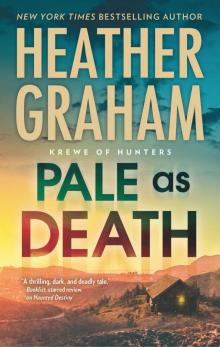 Pale as Death
Pale as Death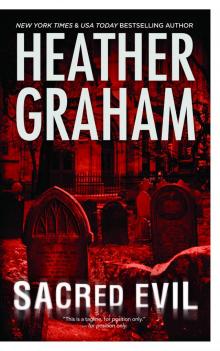 Phantom Evil
Phantom Evil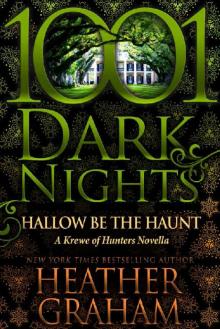 Hallow Be the Haunt
Hallow Be the Haunt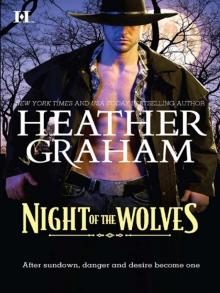 Night of the Wolves
Night of the Wolves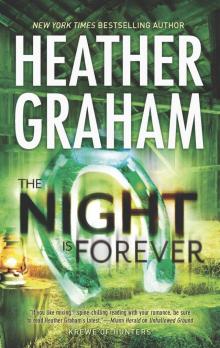 The Night Is Forever
The Night Is Forever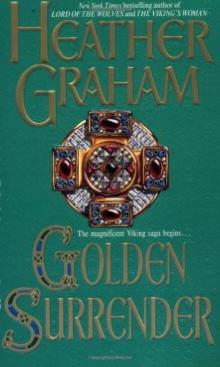 Golden Surrender
Golden Surrender Kiss of Darkness
Kiss of Darkness Beneath a Blood Red Moon
Beneath a Blood Red Moon A Dangerous Game
A Dangerous Game Ghost Shadow
Ghost Shadow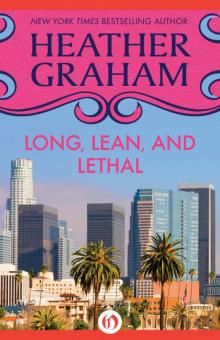 Long, Lean, and Lethal
Long, Lean, and Lethal Fade to Black
Fade to Black The Rising
The Rising And One Wore Gray
And One Wore Gray Rebel
Rebel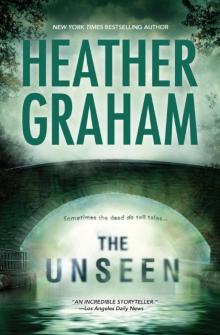 The Unseen
The Unseen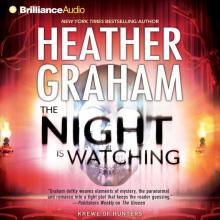 The Night Is Watching
The Night Is Watching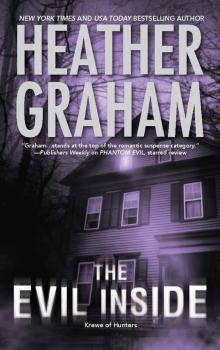 The Evil Inside
The Evil Inside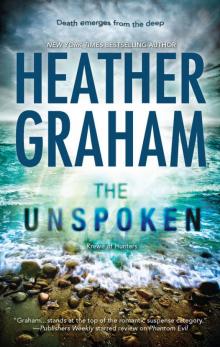 The Unspoken
The Unspoken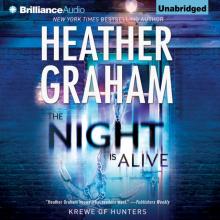 The Night Is Alive
The Night Is Alive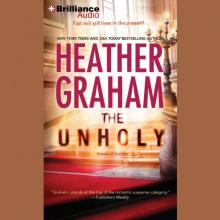 The Unholy
The Unholy Nightwalker
Nightwalker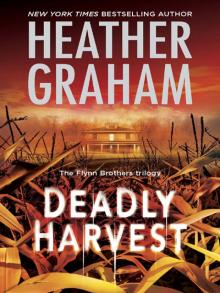 Deadly Harvest
Deadly Harvest An Angel for Christmas
An Angel for Christmas A Pirate's Pleasure
A Pirate's Pleasure American Drifter
American Drifter Realm of Shadows
Realm of Shadows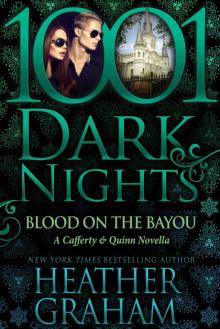 Blood on the Bayou
Blood on the Bayou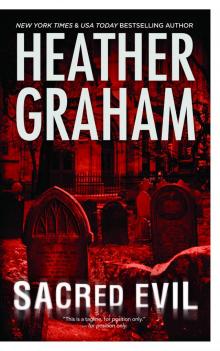 Sacred Evil
Sacred Evil Dying to Have Her
Dying to Have Her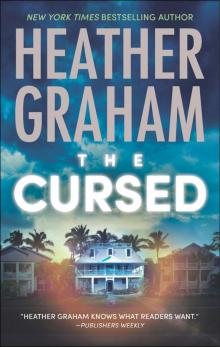 The Cursed
The Cursed Captive
Captive Hurricane Bay
Hurricane Bay Drop Dead Gorgeous
Drop Dead Gorgeous Ghost Memories
Ghost Memories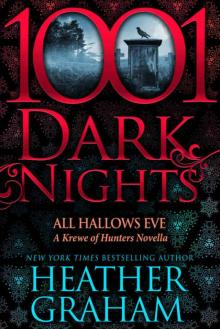 All Hallows Eve
All Hallows Eve Dying Breath
Dying Breath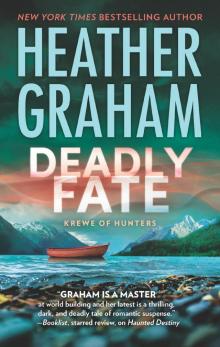 Deadly Fate
Deadly Fate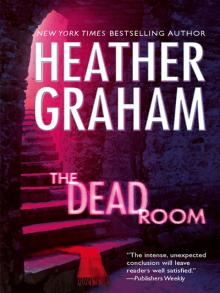 The Dead Room
The Dead Room Lord of the Wolves
Lord of the Wolves Ghost Night
Ghost Night Ghost Walk
Ghost Walk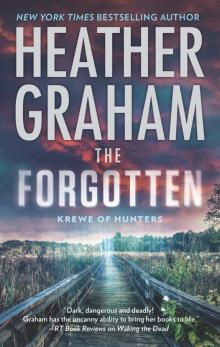 The Forgotten
The Forgotten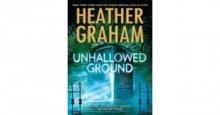 Unhallowed Ground
Unhallowed Ground One Wore Blue
One Wore Blue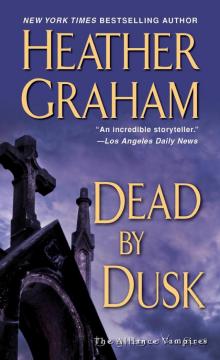 Dead By Dusk
Dead By Dusk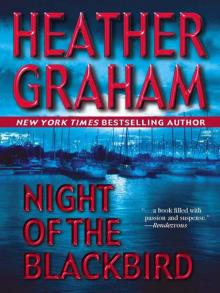 Night of the Blackbird
Night of the Blackbird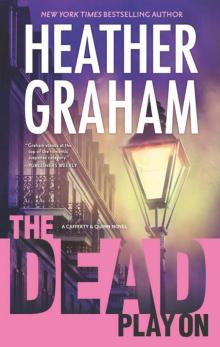 The Dead Play On
The Dead Play On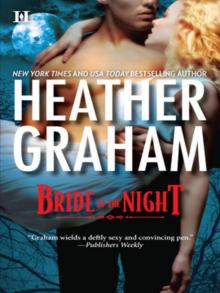 Bride of the Night
Bride of the Night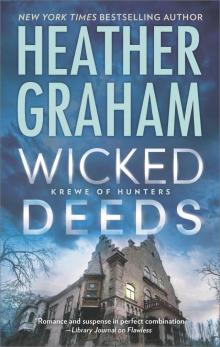 Wicked Deeds
Wicked Deeds The Forbidden
The Forbidden Triumph
Triumph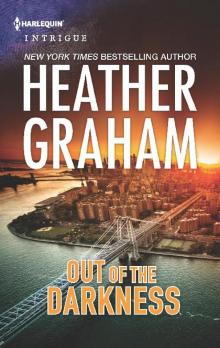 Out of the Darkness
Out of the Darkness Love Not a Rebel
Love Not a Rebel The Last Noel
The Last Noel Tall, Dark, and Deadly
Tall, Dark, and Deadly The Death Dealer
The Death Dealer Dead on the Dance Floor
Dead on the Dance Floor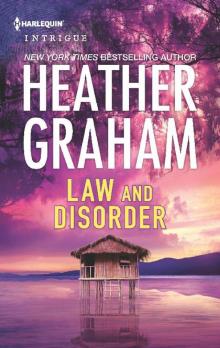 Law and Disorder
Law and Disorder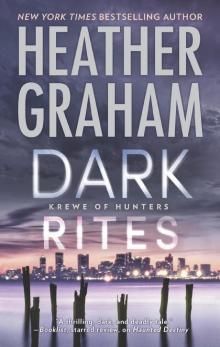 Dark Rites
Dark Rites New Year's Eve
New Year's Eve Hostage At Crystal Manor
Hostage At Crystal Manor And One Rode West
And One Rode West Home in Time for Christmas
Home in Time for Christmas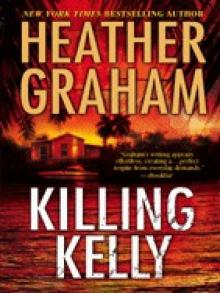 Killing Kelly
Killing Kelly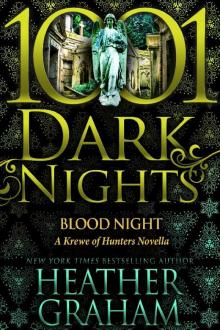 Blood Night
Blood Night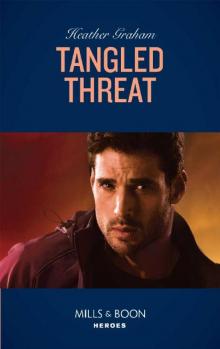 Tangled Threat (Mills & Boon Heroes)
Tangled Threat (Mills & Boon Heroes)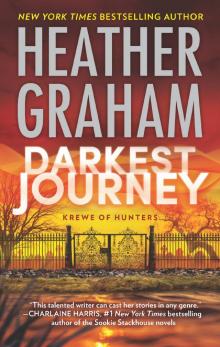 Darkest Journey
Darkest Journey Glory
Glory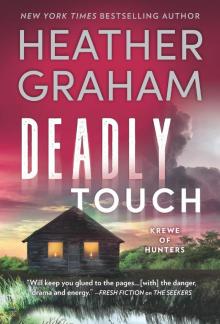 Deadly Touch
Deadly Touch An Unexpected Guest
An Unexpected Guest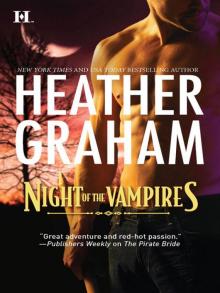 Night of the Vampires
Night of the Vampires Seize the Wind
Seize the Wind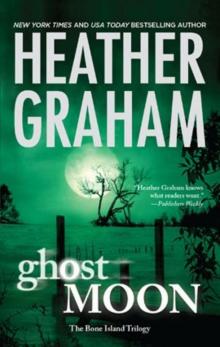 Ghost Moon
Ghost Moon The Vision
The Vision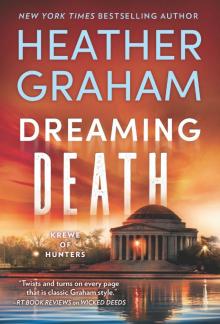 Dreaming Death
Dreaming Death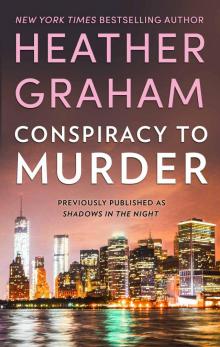 Conspiracy to Murder
Conspiracy to Murder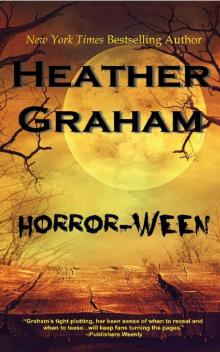 Horror-Ween (Krewe of Hunters)
Horror-Ween (Krewe of Hunters)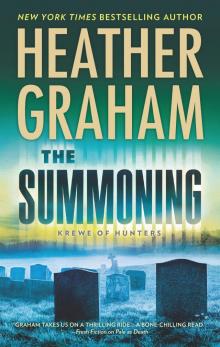 The Summoning
The Summoning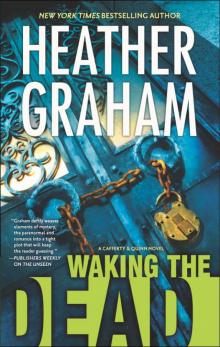 Waking the Dead
Waking the Dead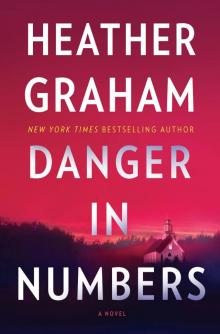 Danger in Numbers
Danger in Numbers The Hidden
The Hidden Sweet Savage Eden
Sweet Savage Eden Tangled Threat ; Suspicious
Tangled Threat ; Suspicious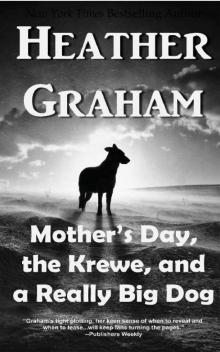 Mother's Day, the Krewe, and a Really Big Dog
Mother's Day, the Krewe, and a Really Big Dog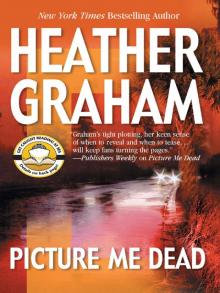 Picture Me Dead
Picture Me Dead The Killing Edge
The Killing Edge St. Patrick's Day
St. Patrick's Day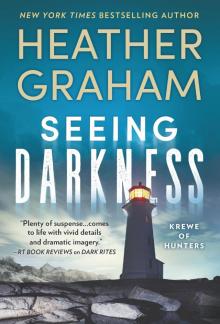 Seeing Darkness
Seeing Darkness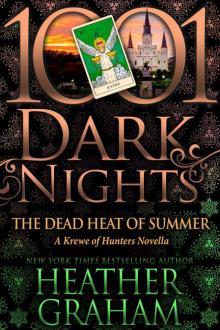 The Dead Heat of Summer: A Krewe of Hunters Novella
The Dead Heat of Summer: A Krewe of Hunters Novella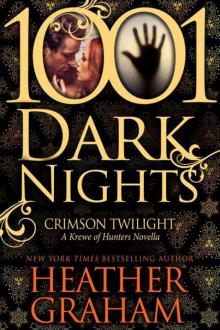 Crimson Twilight
Crimson Twilight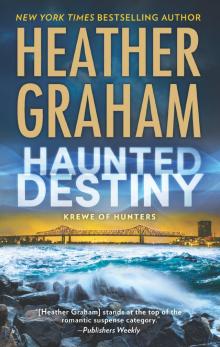 Haunted Destiny
Haunted Destiny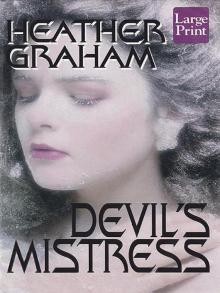 Devil's Mistress
Devil's Mistress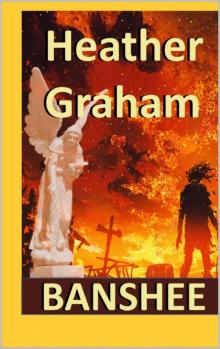 Banshee
Banshee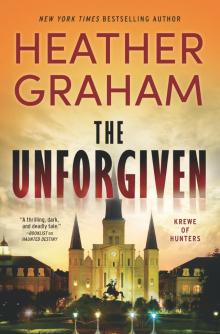 The Unforgiven
The Unforgiven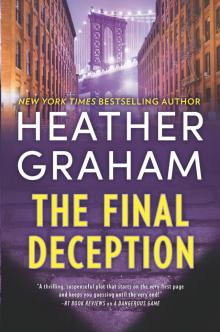 The Final Deception
The Final Deception A Horribly Haunted Halloween
A Horribly Haunted Halloween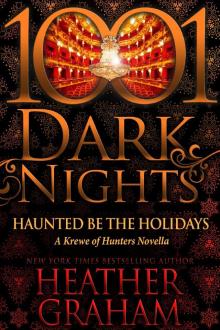 Haunted Be the Holidays
Haunted Be the Holidays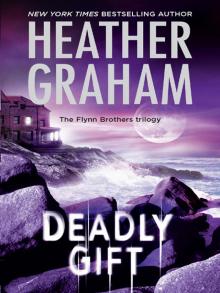 Deadly Gift
Deadly Gift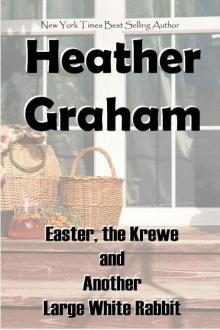 Easter, the Krewe and Another Large White Rabbit
Easter, the Krewe and Another Large White Rabbit Haunted
Haunted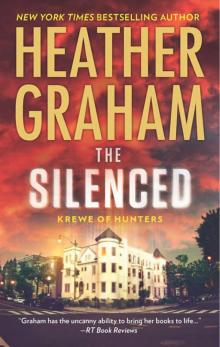 The Silenced
The Silenced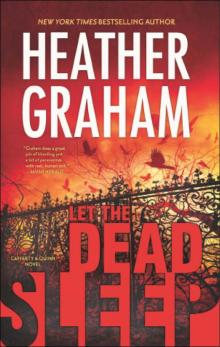 Let the Dead Sleep
Let the Dead Sleep Christmas, the Krewe, and Kenneth
Christmas, the Krewe, and Kenneth Big Easy Evil
Big Easy Evil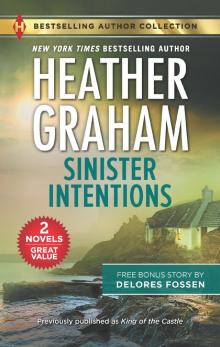 Sinister Intentions & Confiscated Conception
Sinister Intentions & Confiscated Conception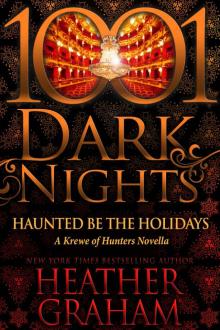 Haunted Be the Holidays: A Krewe of Hunters Novella
Haunted Be the Holidays: A Krewe of Hunters Novella Blood Red
Blood Red A Perilous Eden
A Perilous Eden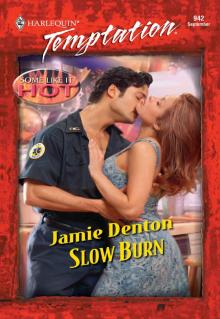 Slow Burn
Slow Burn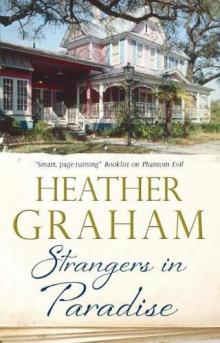 Strangers In Paradise
Strangers In Paradise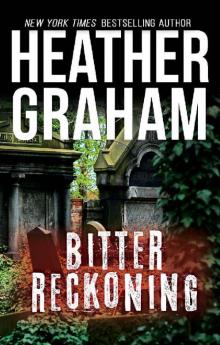 Bitter Reckoning
Bitter Reckoning Krewe of Hunters, Volume 1: Phantom Evil ; Heart of Evil ; Sacred Evil ; The Evil Inside
Krewe of Hunters, Volume 1: Phantom Evil ; Heart of Evil ; Sacred Evil ; The Evil Inside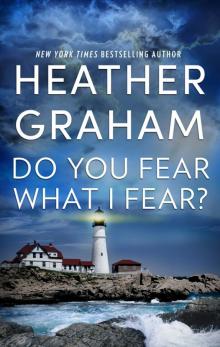 Do You Fear What I Fear?
Do You Fear What I Fear?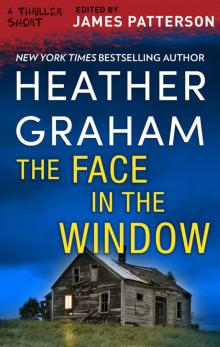 The Face in the Window
The Face in the Window Krewe of Hunters, Volume 3: The Night Is WatchingThe Night Is AliveThe Night Is Forever
Krewe of Hunters, Volume 3: The Night Is WatchingThe Night Is AliveThe Night Is Forever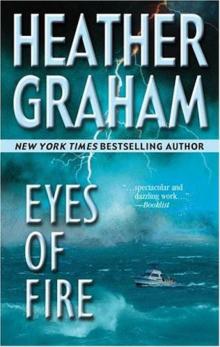 Eyes of Fire
Eyes of Fire Apache Summer sb-3
Apache Summer sb-3 Sensuous Angel
Sensuous Angel In the Dark
In the Dark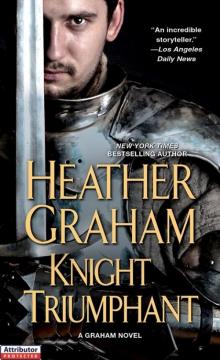 Knight Triumphant
Knight Triumphant Hours to Cherish
Hours to Cherish Tender Deception
Tender Deception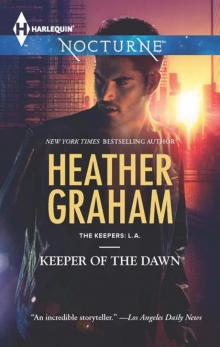 Keeper of the Dawn tkl-4
Keeper of the Dawn tkl-4 Apache Summer
Apache Summer Between Roc and a Hard Place
Between Roc and a Hard Place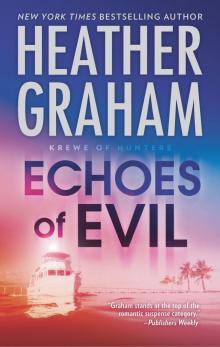 Echoes of Evil
Echoes of Evil The Game of Love
The Game of Love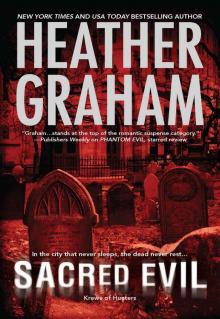 Sacred Evil (Krewe of Hunters)
Sacred Evil (Krewe of Hunters) Bougainvillea
Bougainvillea Tender Taming
Tender Taming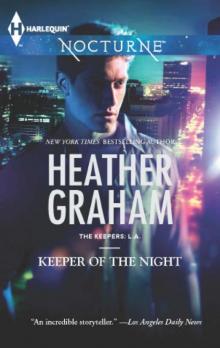 Keeper of the Night (The Keepers: L.A.)
Keeper of the Night (The Keepers: L.A.)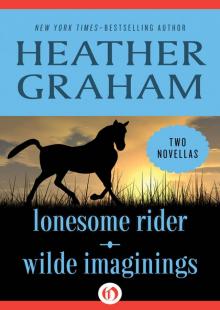 Lonesome Rider and Wilde Imaginings
Lonesome Rider and Wilde Imaginings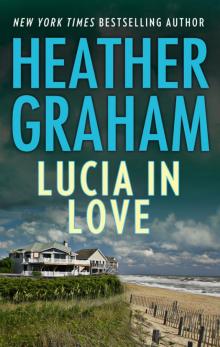 Lucia in Love
Lucia in Love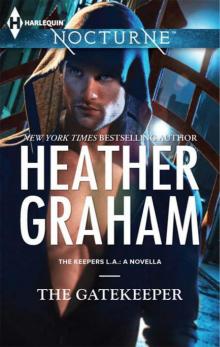 The Gatekeeper
The Gatekeeper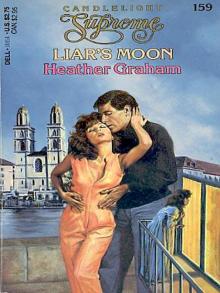 Liar's Moon
Liar's Moon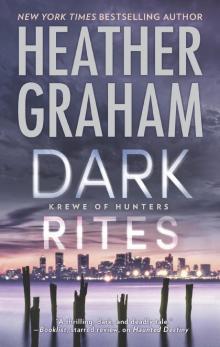 Dark Rites--A Paranormal Romance Novel
Dark Rites--A Paranormal Romance Novel A Season for Love
A Season for Love Krewe of Hunters, Volume 6: Haunted Destiny ; Deadly Fate ; Darkest Journey
Krewe of Hunters, Volume 6: Haunted Destiny ; Deadly Fate ; Darkest Journey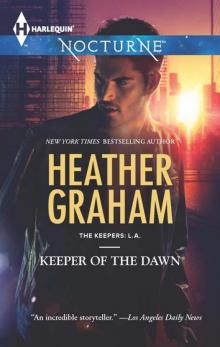 Keeper of the Dawn (The Keepers: L.A.)
Keeper of the Dawn (The Keepers: L.A.)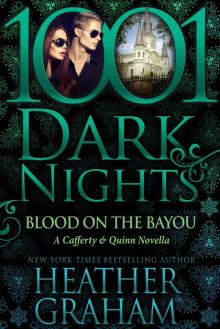 Blood on the Bayou: A Cafferty & Quinn Novella
Blood on the Bayou: A Cafferty & Quinn Novella Double Entendre
Double Entendre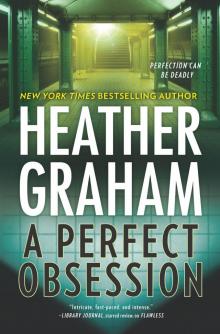 A Perfect Obsession--A Novel of Romantic Suspense
A Perfect Obsession--A Novel of Romantic Suspense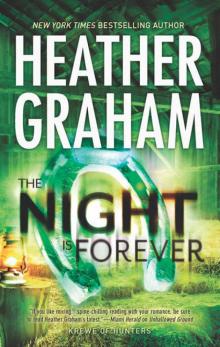 The Night Is Forever koh-11
The Night Is Forever koh-11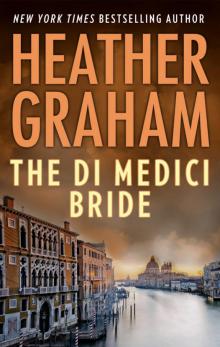 The Di Medici Bride
The Di Medici Bride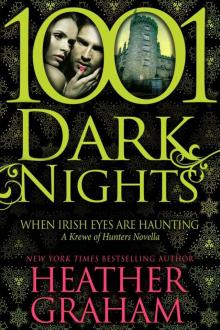 When Irish Eyes Are Haunting: A Krewe of Hunters Novella
When Irish Eyes Are Haunting: A Krewe of Hunters Novella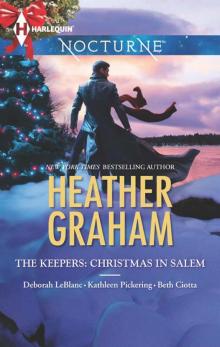 The Keepers: Christmas in Salem: Do You Fear What I Fear?The Fright Before ChristmasUnholy NightStalking in a Winter Wonderland (Harlequin Nocturne)
The Keepers: Christmas in Salem: Do You Fear What I Fear?The Fright Before ChristmasUnholy NightStalking in a Winter Wonderland (Harlequin Nocturne)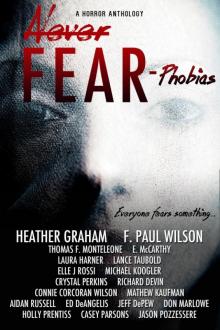 Never Fear
Never Fear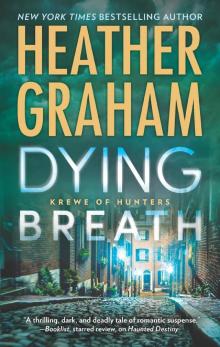 Dying Breath--A Heart-Stopping Novel of Paranormal Romantic Suspense
Dying Breath--A Heart-Stopping Novel of Paranormal Romantic Suspense If Looks Could Kill
If Looks Could Kill This Rough Magic
This Rough Magic Heather Graham's Christmas Treasures
Heather Graham's Christmas Treasures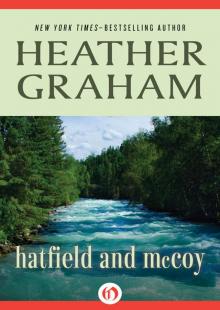 Hatfield and McCoy
Hatfield and McCoy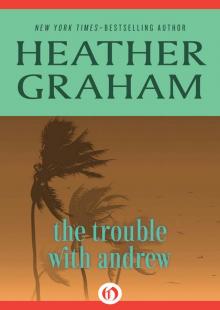 The Trouble with Andrew
The Trouble with Andrew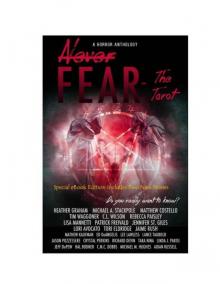 Never Fear - The Tarot: Do You Really Want To Know?
Never Fear - The Tarot: Do You Really Want To Know?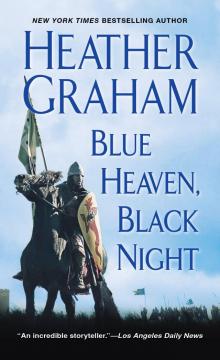 Blue Heaven, Black Night
Blue Heaven, Black Night Forbidden Fire
Forbidden Fire Come the Morning
Come the Morning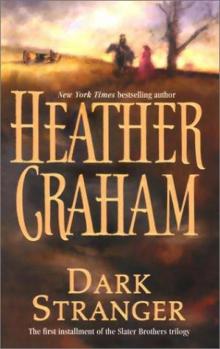 Dark Stranger sb-4
Dark Stranger sb-4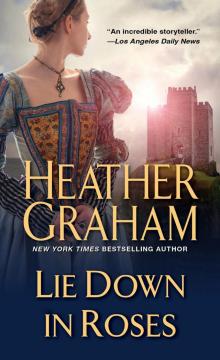 Lie Down in Roses
Lie Down in Roses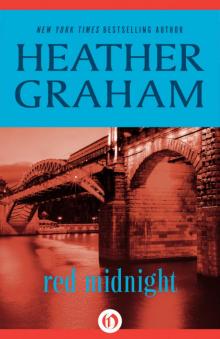 Red Midnight
Red Midnight Krewe of Hunters Series, Volume 5
Krewe of Hunters Series, Volume 5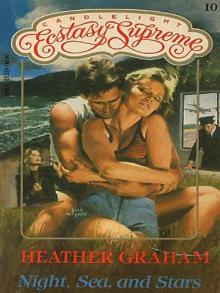 Night, Sea, And Stars
Night, Sea, And Stars Snowfire
Snowfire Quiet Walks the Tiger
Quiet Walks the Tiger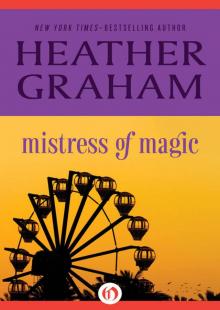 Mistress of Magic
Mistress of Magic For All of Her Life
For All of Her Life Runaway
Runaway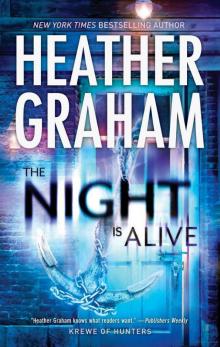 The Night Is Alive koh-10
The Night Is Alive koh-10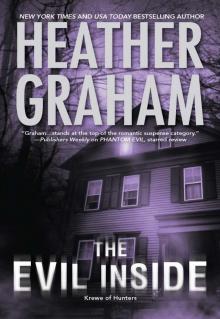 The Evil Inside (Krewe of Hunters)
The Evil Inside (Krewe of Hunters)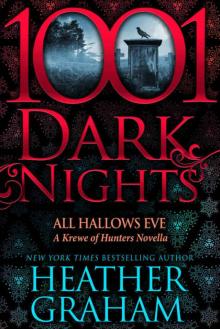 All Hallows Eve: A Krewe of Hunters Novella (1001 Dark Nights)
All Hallows Eve: A Krewe of Hunters Novella (1001 Dark Nights) Tomorrow the Glory
Tomorrow the Glory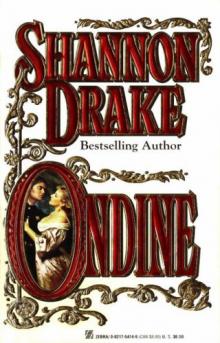 Ondine
Ondine Angel of Mercy & Standoff at Mustang Ridge
Angel of Mercy & Standoff at Mustang Ridge Bride of the Tiger
Bride of the Tiger When Next We Love
When Next We Love Heather Graham Krewe of Hunters Series, Volume 4
Heather Graham Krewe of Hunters Series, Volume 4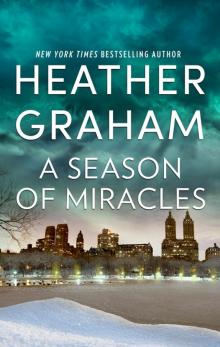 A Season of Miracles
A Season of Miracles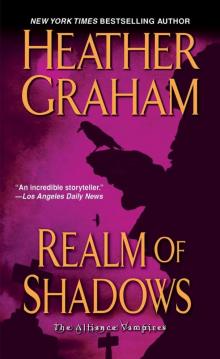 Realm of Shadows (Vampire Alliance)
Realm of Shadows (Vampire Alliance)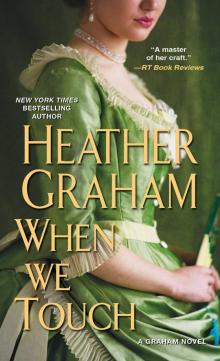 When We Touch
When We Touch Serena's Magic
Serena's Magic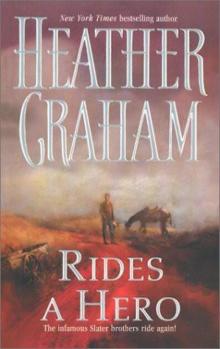 Rides a Hero sb-2
Rides a Hero sb-2 All in the Family
All in the Family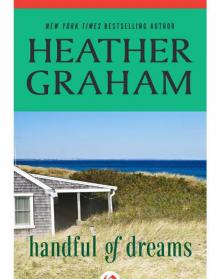 Handful of Dreams
Handful of Dreams A Stranger in the Hamptons
A Stranger in the Hamptons Krewe of Hunters, Volume 2: The Unseen ; The Unholy ; The Unspoken ; The Uninvited
Krewe of Hunters, Volume 2: The Unseen ; The Unholy ; The Unspoken ; The Uninvited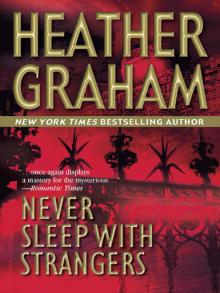 Never Sleep With Strangers
Never Sleep With Strangers Eden's Spell
Eden's Spell A Magical Christmas
A Magical Christmas Forever My Love
Forever My Love King of the Castle
King of the Castle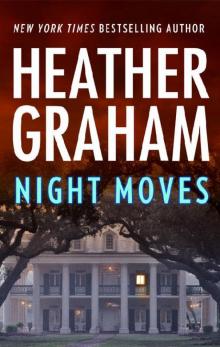 Night Moves (60th Anniversary)
Night Moves (60th Anniversary) The Island
The Island Borrowed Angel
Borrowed Angel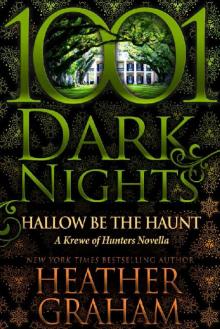 Hallow Be the Haunt: A Krewe of Hunters Novella
Hallow Be the Haunt: A Krewe of Hunters Novella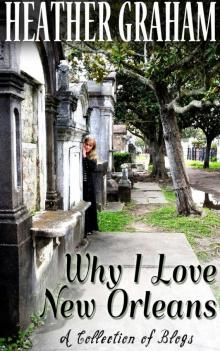 Why I Love New Orleans
Why I Love New Orleans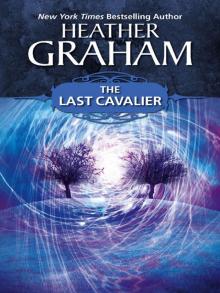 The Last Cavalier
The Last Cavalier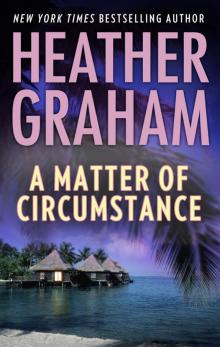 A Matter of Circumstance
A Matter of Circumstance Heather Graham's Haunted Treasures
Heather Graham's Haunted Treasures Tempestuous Eden
Tempestuous Eden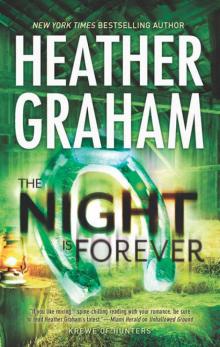 Krewe 11 - The Night Is Forever
Krewe 11 - The Night Is Forever